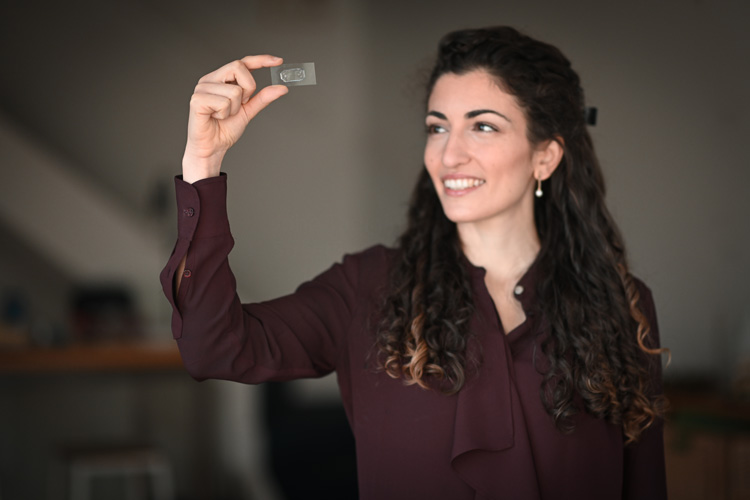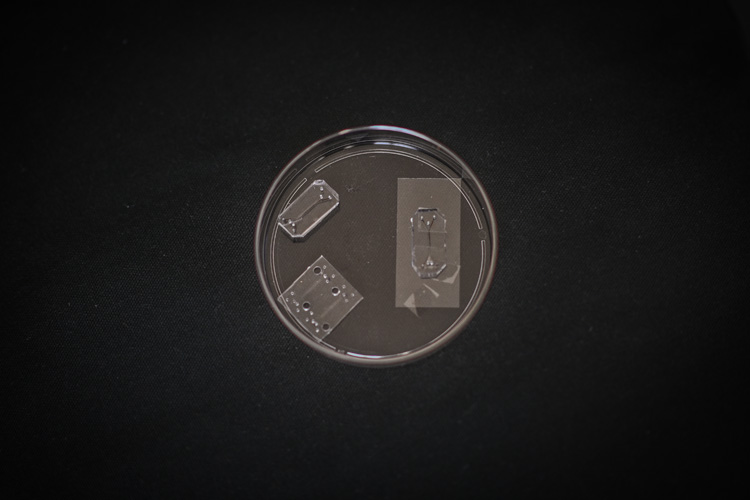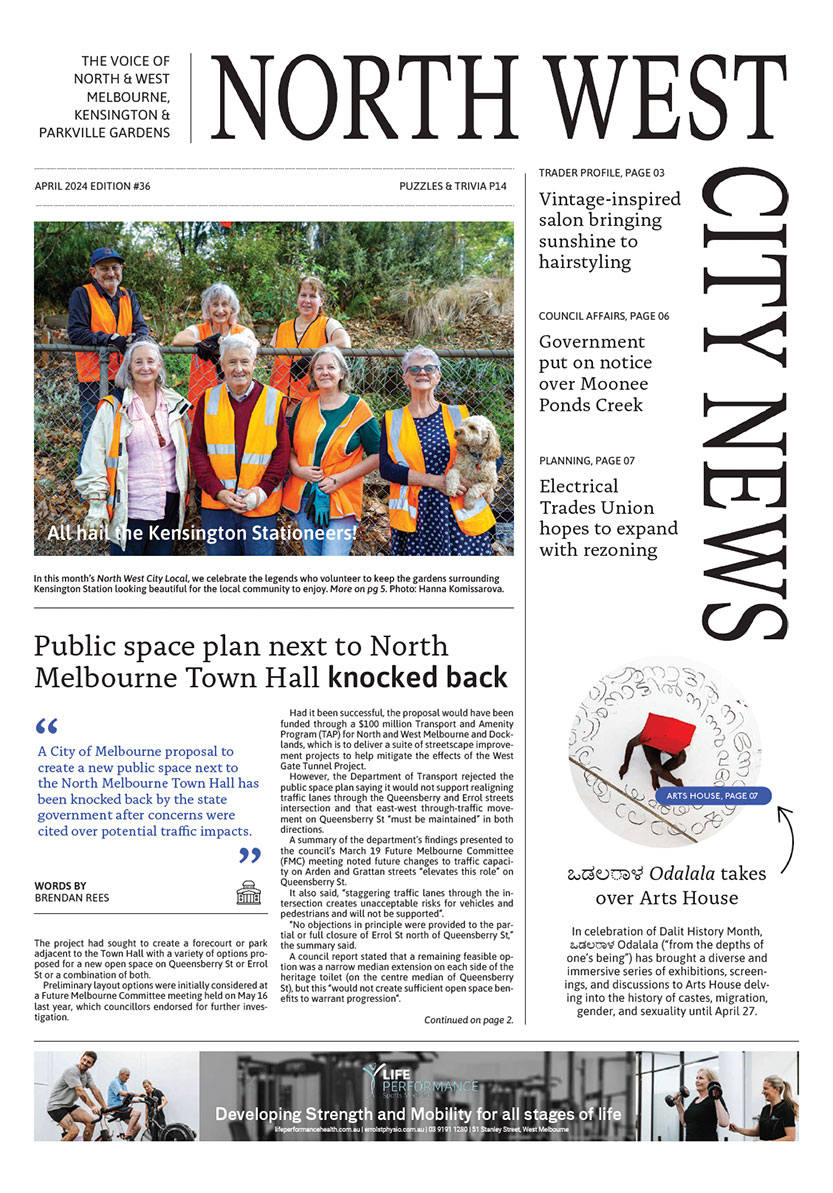Local scientist creates “brain-on-a-chip” to study brain infections
West Melbourne scientist Arianna Oddo has made the Victorian finals of the world-renowned FameLab competition for her ground-breaking “brain-on-a-chip”, which aims to support the discovery of new cures for devastating brain infections.
The quad-lingual PhD candidate from Italy is part of a team of researchers at Monash University which has developed a device the size of a USB drive which contains the key features of the human brain.
Made from the same material as contact lenses, the device features tiny channels in which blood vessels and brain cells are grown to replicate human biology better than animal models or petri dishes.
Ms Oddo said she had high hopes that brain-on-a-chip would help us understand how viruses moved from the blood into the brain, ultimately supporting the development of new cures for brain infections such as meningitis and cerebral malaria.
“We have been using the brain-on-a-chip to study how infected red blood cells stick the blood vessels inside the brain,” she said.
But it hasn’t been all easy. Just two days before the Victorian final of FameLab – a live science communication competition run each year in Australia and 22 countries across the world – Ms Oddo experienced a family issue which made things difficult.
“At the start of my presentation, I really panicked and went blank,” she said.
“It was a really challenging day. I lost focus and asked if I could start again.”
Although Ms Oddo speaks English, German, Italian and Spanish, English is not her first language, so she turned to the North Melbourne Good Karma Network (NMGKN) Facebook group to see if anyone would help her practice her presentation.
“It’s very hard to compete in a different language as your second language,” she said.
“I asked if anyone was willing to listen to me before the competition and give me feedback on pronunciation etc. I was really touched by how much people were willing to help!”
“I would really like to thank the NMGKN.”
Ms Oddo said one particular NMGKN member, Jenni Morris, who helps PhD students where she can, even lent her a heater for those cold, winter days writing her thesis.
Ms Oddo said brain-on-a-chip was the product of a mammoth team-effort by a group of researchers from Monash University led by Prof Nicolas Voelcker in collaboration with[AO1] Dr Sinéad Williams, Associate Prof Darren Creek and Associate Prof Michelle Baker from the CSIRO in Geelong.
In a country such as India where malaria is endemic, children often develop cerebral malaria which can cause fever, seizures and comas.
Ms Oddo said some malaria treatments would help but wouldn’t solve the fact that the patient’s brain was swollen, which could cause permanent disability. But that’s where brain-on-a-chip can help.
“We got some infected red blood cells and added to the channels with the blood vessel, it was amazing! We could see them sticking to the cells of the blood vessels,” she said.
“If you were developing antimalarial drugs, they might be able to test them on this platform[AO2] .”
While Ms Oddo’s brain-on-a-chip did not win the FameLab finals, in which 12 people were chosen from all of Victoria to present their scientific concepts in three minutes, she’s not letting that slow her down.
“Right now, we’re using cells which are a model of human cells, I’d like some patient-derived cells to make it more relevant,” she said.
Ms Oddo is also looking forward to visiting the CSIRO Australian Centre for Disease Preparedness in Geelong, one of the few labs in Australia where dangerous viruses such as COVID-19 can be tested.
There, Ms Oddo hopes to use brain-on-a-chip to test how harmful viruses that cause diseases such as meningitis to infect the brain.
Follow Arianna Oddo on Twitter: @oddoari

Jo Ryan unveils Ordered Chaos at Blender Studios





 Download the Latest Edition
Download the Latest Edition